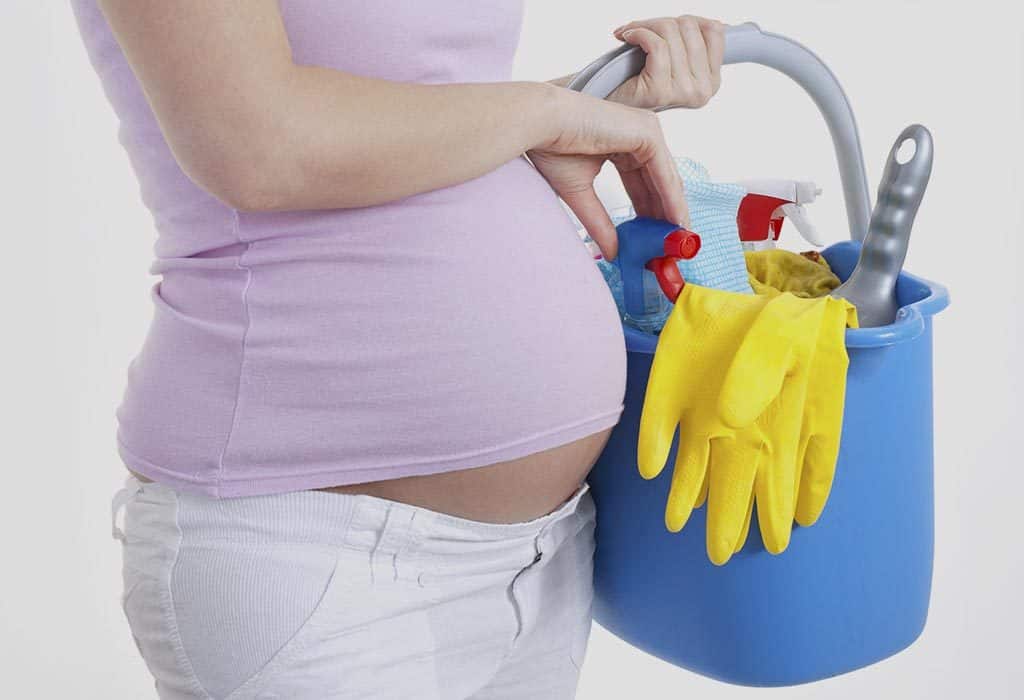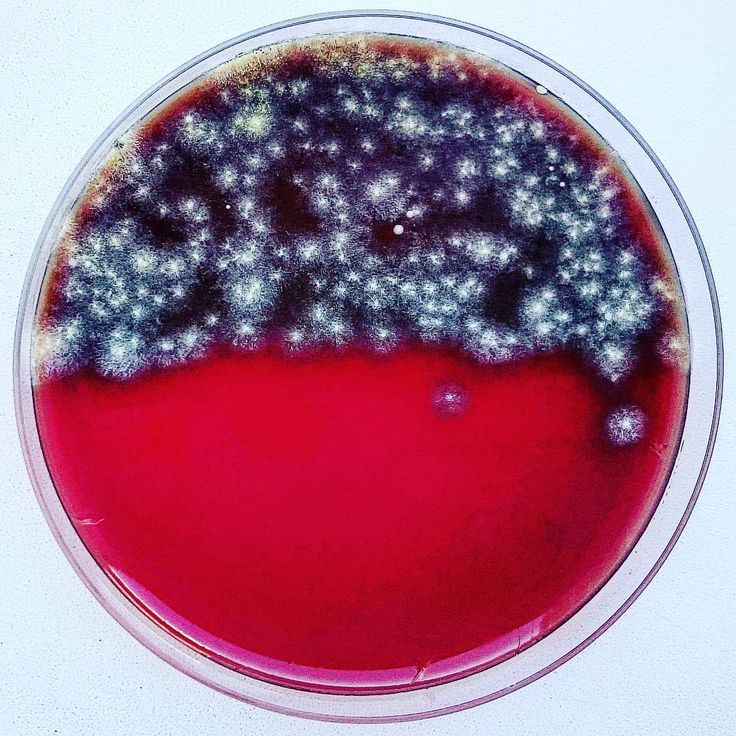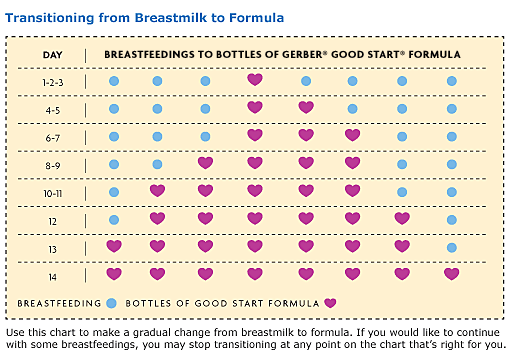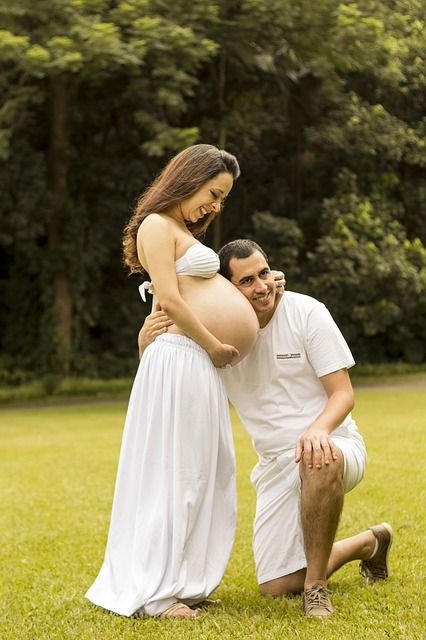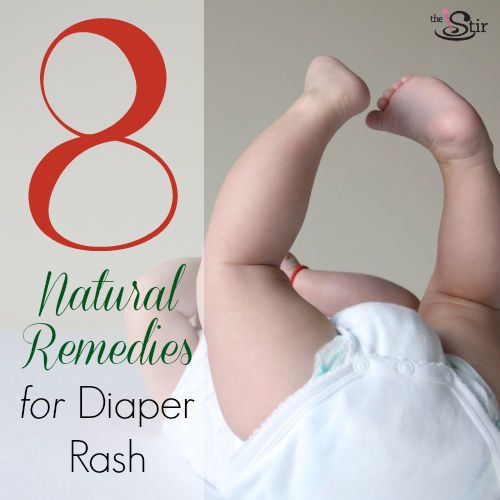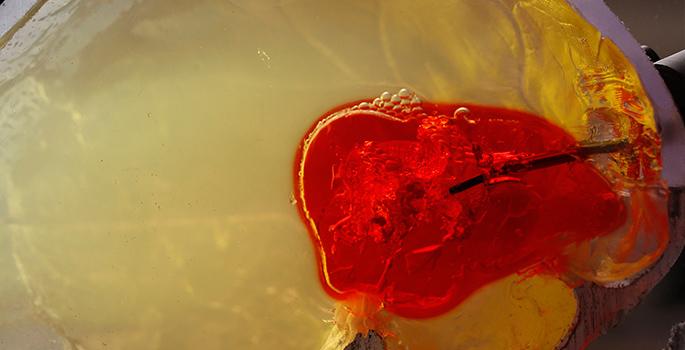Cleaning chemicals while pregnant
Cleaning and Pregnancy - American Pregnancy Association
Unfortunately, ladies, most products are safe to use for cleaning during pregnancy. Yes, even bleach. So you don’t have to call a maid to do the household cleaning unless you want to.
However, try to avoid exposure to cleaning products containing:
Glycol ethers. These are toxic substances found in household cleaning products like oven cleaners and have been associated with miscarriage, decreased male fertility, and birth defects. They may be listed as 2-butoxyethanol (EGBE) and methoxydiglycol (DEGME). .
Phthalates. Prenatal exposure to phthalates may increase the risk of congenital reproductive anomalies in male children. It’s uncommon for phthalates to be listed on cleaning products, but if “fragrance” is listed, there’s a high probability that the fragrance contains phthalates. It is possible that the smells associated with some cleaning products might affect your nausea.
Avoid spray and aerosol cleaners when possible. Many studies have found that prenatal exposure to spray cleaners may increase the risk of asthma. Ingredients that were found to be especially problematic included alcohol, ammonia, chlorine, glycol and glycol-ethylene, sodium hydroxide (caustic soda), acrylic polymers, and terpenes. The increased risk of asthma was not found when cleaners weren’t sprayed.
Avoid air fresheners. As with spray cleaners, prenatal exposure to air fresheners was also associated with an increased risk of asthma and respiratory problems. Another problem with air fresheners is they almost always contain that vague “fragrance” ingredient on their label. This means they may contain phthalates, which you should try to avoid when you’re pregnant. Avoid unpleasant odors from developing in the first place by opening your windows and “airing out” your house whenever possible. Use your oven vent when cooking, if you have one. Take the trash out often, and keep your house tidy.
If you are going to do the dirty work yourself
There are steps that you can take while cleaning during pregnancy to keep you and your baby safe from harm.
Step 1: Make sure that you have good ventilation where you are cleaning
Step 2: Wear protective gloves and clothing to protect your skin
Step 3: Always read the warning and instruction labels
Step 4: Never mix different chemicals, such as ammonia and bleach; doing this can be very dangerous for anyone to inhale
Step 5: Avoid cleaning the oven since it is such a tight space and the ventilation is not good
Step 6: If your partner is around, have him do the cleaning!!!!
Look up cleaning products on the EWG (Environmental Working Group) website. You can look up any cleaning product on the EWG database and learn what ingredients it may contain and the potential health risks. You’re unlikely to find anything with zero risks because of how the database works.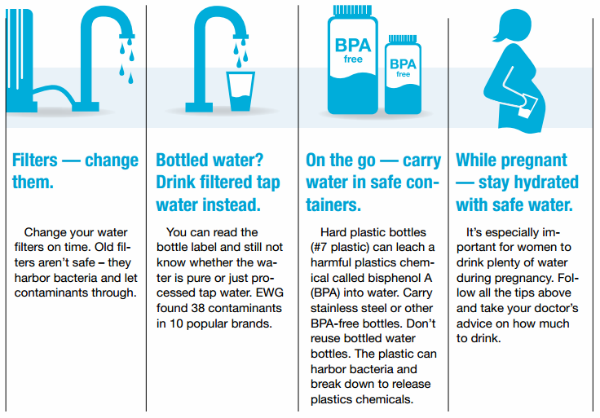 However, if you have a choice between a cleaner with an A or B rating, compared to a cleaner with a C, D, or F rating, you could choose the A or B.
However, if you have a choice between a cleaner with an A or B rating, compared to a cleaner with a C, D, or F rating, you could choose the A or B.
If you feel uncomfortable using chemical cleaning products, go natural. Using baking soda and vinegar can do wonders for cleaning just about anything in your home, from the kitchen to the bathroom.
Want to Know More?
- Foods to Avoid When Pregnant
- Wine During Pregnancy
Compiled using information from the following source:
March of Dimes, www.marchofdimes.org
Toxic household products to avoid during pregnancy
Toxic household products to avoid during pregnancy | Pregnancy Birth and Baby beginning of content6-minute read
Listen
Almost every pregnant woman will come into contact with chemicals that could possibly harm her or her baby.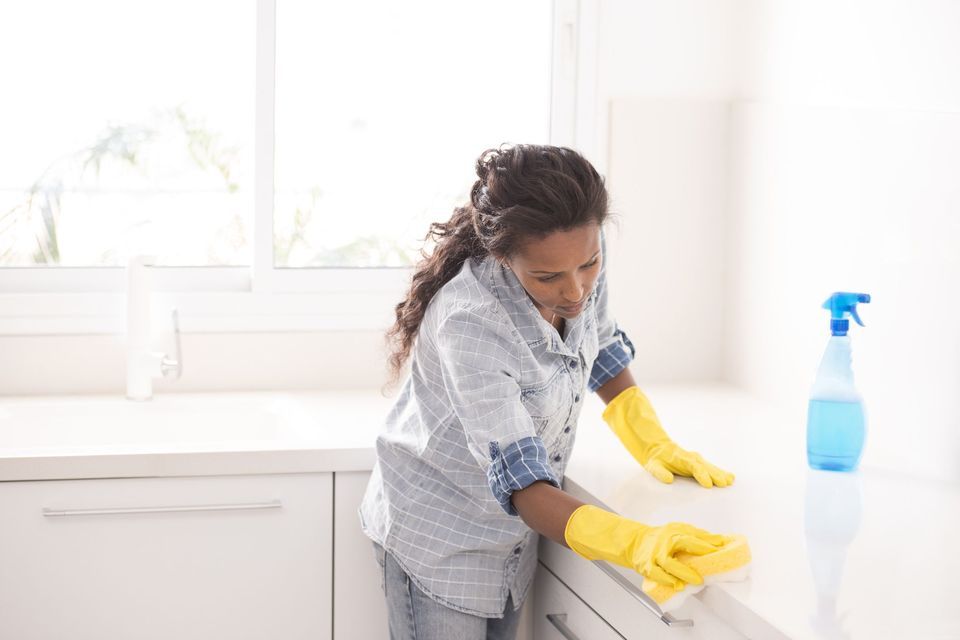 Usually it’s such a small amount that you don’t need to worry, but it’s still a good idea to avoid some toxic products while you're pregnant.
Usually it’s such a small amount that you don’t need to worry, but it’s still a good idea to avoid some toxic products while you're pregnant.
What are 'toxic' household products?
We are surrounded by chemicals and toxins (poisons). They include pesticides in the garden, flame retardants on furniture, lead, mercury and some cleaning products.
Most chemicals you come across in your daily life won’t harm your baby. But if you are exposed to large quantities of chemicals for a long time, it’s possible your child will be at an increased risk of congenital disorders or future health problems.
If you breathe or swallow some chemicals, they can enter your bloodstream and pass to your baby via the placenta. Your baby can also be exposed to chemicals after they are born through your breastmilk or if they put their fingers in their mouth.
If you are pregnant or breastfeeding, these tips will help you minimise your exposure.
Chemicals to avoid when you’re pregnant or breastfeeding
Pesticides and herbicides
Some pesticides (bug killers) and herbicides (weed killers) are known to affect developing and newborn babies.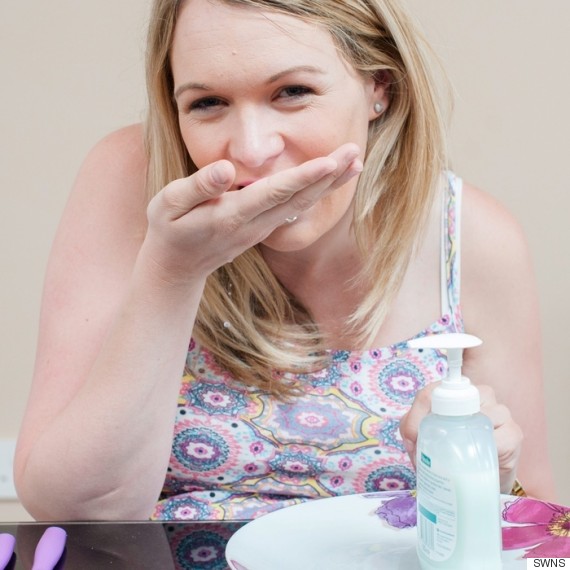 Usually pesticides used in the home and for professional pest treatments are safe. But it’s a good idea to avoid them as much as possible while you are pregnant. Ask someone else, like a licensed pest control professional, to do the treatment for you.
Usually pesticides used in the home and for professional pest treatments are safe. But it’s a good idea to avoid them as much as possible while you are pregnant. Ask someone else, like a licensed pest control professional, to do the treatment for you.
Cleaning products
Although most cleaning products are safe, there have been reports of some household chemicals causing wheezing in early childhood. To be on the safe side, wear gloves and avoid breathing in fumes from products such as oven and tile cleaners.
Paint
Most paint fumes are safe while you’re pregnant, but there is a slightly increased risk if you use solvent-based paints or strip old paintwork as these may contain traces of lead. Choose a water-based paint and a paint brush or roller rather than spray (which contains solvents). Make sure the room is well ventilated if you paint — or have someone else do it for you.
Mosquito repellent
All mosquito repellents in Australia have been tested and are safe to use.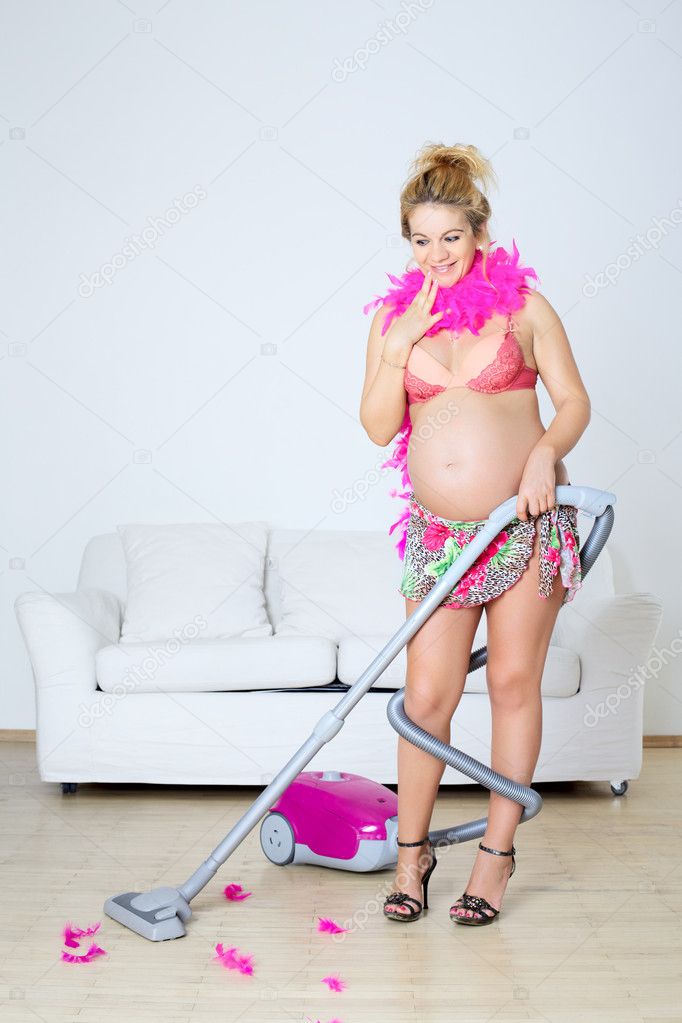 However, a small amount of the chemicals DEET or picaridin will enter the skin, and it’s best to take care during the first 3 months of pregnancy Choose a repellent with a low to moderate concentration of the chemical — between 5% and 20% — and consider other ways to avoid mosquitos, such as fly screens and long sleeves.
However, a small amount of the chemicals DEET or picaridin will enter the skin, and it’s best to take care during the first 3 months of pregnancy Choose a repellent with a low to moderate concentration of the chemical — between 5% and 20% — and consider other ways to avoid mosquitos, such as fly screens and long sleeves.
Mercury
Being exposed to high levels of mercury can damage your health and increase the likelihood of brain damage, and hearing and vision problems in a developing baby. Some fish contain mercury, including shark (flake), broadbill, marlin and swordfish. To be on the safe side, pregnant women should limit eating these species of fish to no more than once a fortnight. If you need a dental filling, talk to your dentist about options that don’t contain mercury.
Arsenic-treated timber
Outdoor wood is often treated with copper, chromium or arsenic to protect it from dry rot, fungi, mould and termites. This treatment has been linked to some cancers, diabetes, miscarriage and stillbirth.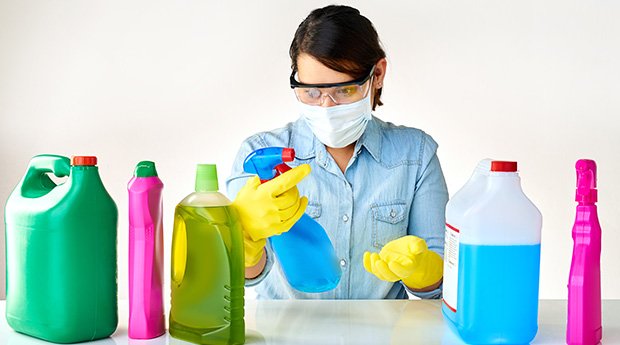 It gives the wood a greenish tinge, which fades over time. You can protect yourself and your baby by not putting food on arsenic-treated timber and washing your (and your child’s) hands after they play on it.
It gives the wood a greenish tinge, which fades over time. You can protect yourself and your baby by not putting food on arsenic-treated timber and washing your (and your child’s) hands after they play on it.
Nail polish
Formaldehyde is a chemical used in nail polish, some cosmetics and hair-straightening products. The amount of formaldehyde in nail polish is very small and quickly broken down by the body, however adverse effects on the baby cannot be ruled out. So it’s best to use nail polishes that don’t have formaldehyde.
Paint and lead-based products
High levels of lead in the body can affect the health of unborn babies and children. Very high levels can lead to premature birth, low birth weight, or even miscarriage or stillbirth. It's important to keep your exposure to lead as low as possible.
Paint containing lead was used in many Australian houses before 1970, so avoid stripping old paint while you’re pregnant. Consuming a small flake of paint the size of a 5-cent piece can raise levels in your blood for several weeks, and some of this will remain in the body for life.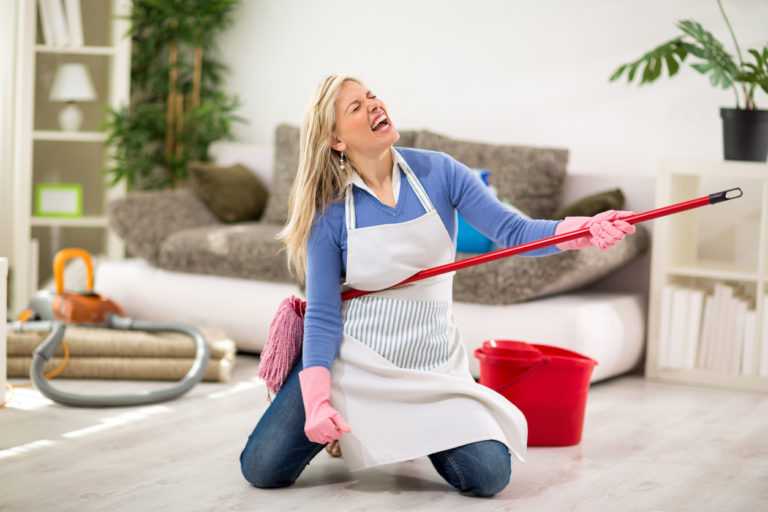 It's important to keep young children away from old paint, too.
It's important to keep young children away from old paint, too.
Flame retardants
Chemicals used to make household furniture less flammable have been linked to learning disabilities in children. To avoid exposure, wash your hands frequently, use a vacuum fitted with a HEPA filter and mop the floor regularly. Also, avoid coming into contact any foam inside the furniture.
Dry cleaning chemicals
It’s safe to have your clothes dry cleaned when you’re pregnant. If you come into contact with a lot of the chemicals – if, for example, you work at a dry cleaners — you may be at a slightly increased risk of miscarriage. Talk to your employer about working safely while you are pregnant.
Asbestos
Asbestos was used in many building materials in Australia and is linked to several lung diseases such as lung cancer and mesothelioma. While there is no evidence that asbestos can affect your pregnancy or result in a congenital disorder, you should avoid contact with asbestos — or suspected sources of asbestos — at any time.
BPA
The chemical bisphenol A (BPA) is found in most plastics, and can pass from a mother to her baby in the womb. It has been suggested that it can cause brain and behaviour problems in some children. However, Food Standards Australia New Zealand says BPA used in food packaging poses no health risks to people of any age, including unborn children and infants.
Mothballs (naphthalene)
Mothballs contain the chemical naphthalene, which has been known to give people headaches, nausea, dizziness and vomiting. It can also lead to serious health problems in small children because they are more likely to put mothballs in their mouths. Don’t use mothballs around children under 3 years and make sure they’re stored safely.
How to avoid exposure to chemicals
To reduce your exposure to chemicals:
- Store all chemicals safely — out of the reach of children and with safety caps screwed on correctly.
- Always read and follow the instructions on any packaging.

- Find alternatives, if you can — for example, use products that contain low levels of chemicals, or baking soda and vinegar for cleaning.
- Wash your hands regularly.
- Consider not renovating while you’re pregnant or breastfeeding.
- If you have a task that involves chemicals (such as some types of cleaning), ask someone else to do it.
- Keep your home well ventilated.
Working with chemicals during pregnancy
If your work involves exposure to chemicals, talk to your employer. They must carry out a risk assessment and find ways to reduce your exposure. By law, employers must make work safe for you and your baby when you are pregnant.
For more information, contact Safe Work Australia.
Where to seek help
If you are exposed to a toxic product while you are pregnant, don’t panic. Remember, it’s only long-term exposure to large quantities of chemicals that could potentially harm your baby. A one-off exposure is very unlikely to cause any harm.
If you are worried, call the Poisons Information Hotline on 13 11 26.
For more information and advice, call Pregnancy, Birth and Baby on 1800 882 436 to speak to a maternal child health nurse.
Sources:
Babycenter Australia (What chemicals should I avoid during pregnancy), California Childcare Health Program (Minimizing Exposure to Toxic Flame-Retardants), Department of Agriculture, Water and the Environment (Lead), Food Standards Australia New Zealand (Mercury in fish), Food Standards Australia New Zealand (Bisphenol A (BPA)), Healthy WA (Pregnancy and pesticides), Healthy WA (Stay safe around copper chrome arsenate treated wood), NSW Health (Lead exposure in children), NSW Health (Naphthalene in moth balls and toilet deodorant cakes), NSW Health (Asbestos and health risks), Safe Work Australia (Managing risks of exposure to solvents in the workplace), Thorax (Frequent use of chemical household products is associated with persistent wheezing in pre-school age children), RANZCOG (Common questions in pregnancy), UK Teratology Information Service (Exposure to formaldehyde in pregnancy)Learn more here about the development and quality assurance of healthdirect content.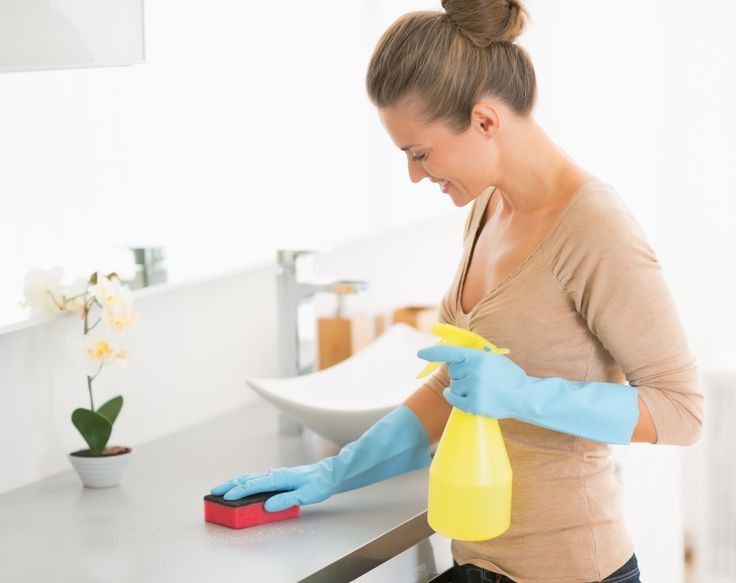
Last reviewed: September 2020
Back To Top
Related pages
- Foods to avoid when pregnant
- Keeping baby safe
- Allergies: controlling your environment
- Protecting your child from lead poisoning
- Medicine and poisons safety in the home
- Working during pregnancy
Need more information?
Chemicals in the home - Better Health Channel
Learn how to safely store and dispose of household chemicals, and how to respond when a person is poisoned.
Read more on Better Health Channel website
How to avoid chemicals that can reduce fertility
In our modern everyday life we come into contact with many different chemicals through the products we use, the food we eat, and the air we breathe.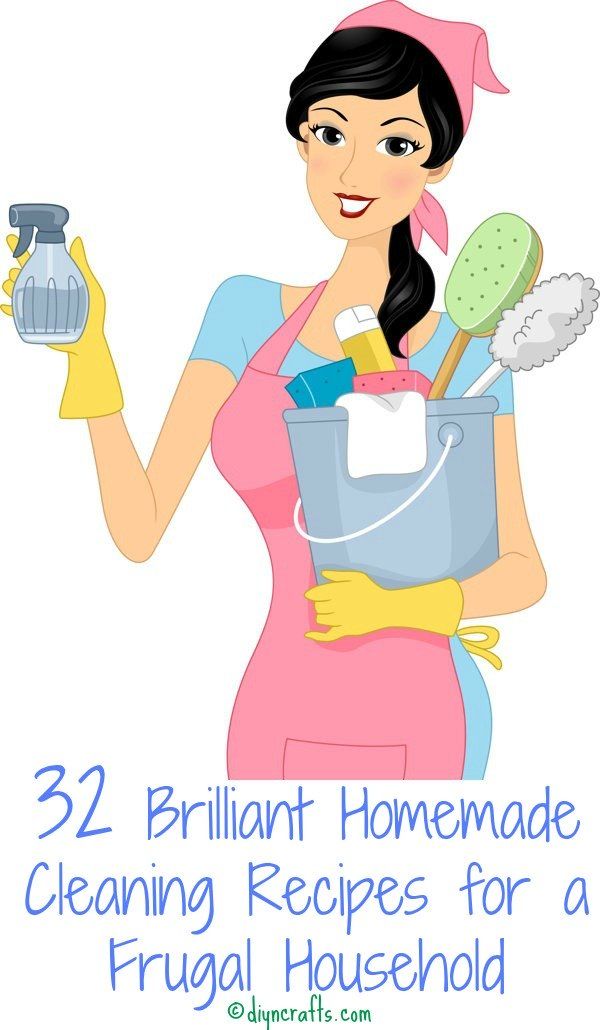
Read more on Your Fertility website
Household poisons: keeping children safe | Raising Children Network
Young children put everything in their mouths, including household poisons, chemicals and medicines. Keep all household poisons up high in locked cupboards.
Read more on raisingchildren.net.au website
Chemicals in our environment | Your Fertility
It’s impossible to completely avoid EDCs
Read more on Your Fertility website
Medicine and poisons safety in the home
Learn more about the importance of child-resistant packaging, how to reduce the risk of poisoning and what to do if your child swallows a poison.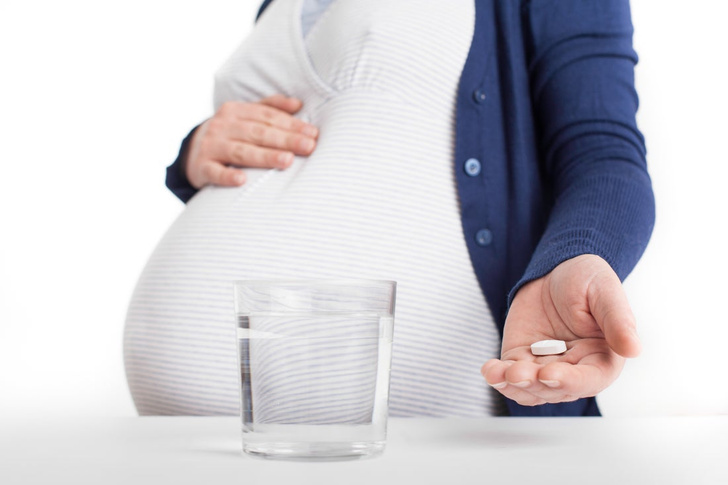
Read more on Pregnancy, Birth & Baby website
Poisoning prevention for children | Raising Children Network
Prevent poisoning in children by storing medicines, chemicals and cleaners up high in a locked cupboard. Call the Poisons Information Centre on 131 126.
Read more on raisingchildren.net.au website
Things to avoid during pregnancy
From hair dye to house paints, there are a few products or lifestyle habits pregnant women and their partners should be cautious of during pregnancy.
Read more on Pregnancy, Birth & Baby website
Accidental poisoning - MyDr.com.au
Children's curiosity can lead to danger, such as unintentional poisoning.
Read more on myDr website
Poisons | Sydney Children's Hospitals Network
Poisoning is one of the most common childhood injuries
Read more on Sydney Children's Hospitals Network website
Tick removal: First aid and prevention - MyDr.com.au
Freeze it; Don't squeeze it! That's the latest advice from experts to Australians who have an attached adult tick. Tick removal: First aid and prevention
Read more on myDr website
Disclaimer
Pregnancy, Birth and Baby is not responsible for the content and advertising on the external website you are now entering.
OKNeed further advice or guidance from our maternal child health nurses?
1800 882 436
Video call
- Contact us
- About us
- A-Z topics
- Symptom Checker
- Service Finder
- Linking to us
- Information partners
- Terms of use
- Privacy
Pregnancy, Birth and Baby is funded by the Australian Government and operated by Healthdirect Australia.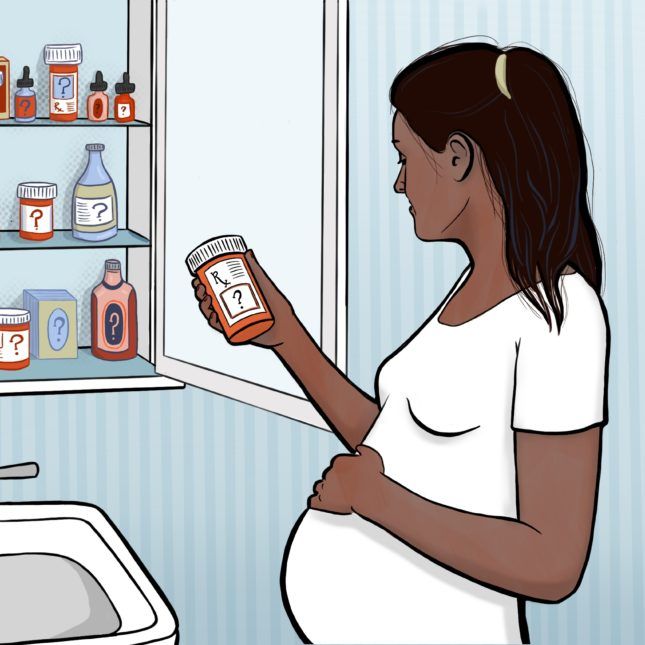
Pregnancy, Birth and Baby is provided on behalf of the Department of Health
Pregnancy, Birth and Baby’s information and advice are developed and managed within a rigorous clinical governance framework. This website is certified by the Health On The Net (HON) foundation, the standard for trustworthy health information.
This site is protected by reCAPTCHA and the Google Privacy Policy and Terms of Service apply.
This information is for your general information and use only and is not intended to be used as medical advice and should not be used to diagnose, treat, cure or prevent any medical condition, nor should it be used for therapeutic purposes.
The information is not a substitute for independent professional advice and should not be used as an alternative to professional health care. If you have a particular medical problem, please consult a healthcare professional.
Except as permitted under the Copyright Act 1968, this publication or any part of it may not be reproduced, altered, adapted, stored and/or distributed in any form or by any means without the prior written permission of Healthdirect Australia.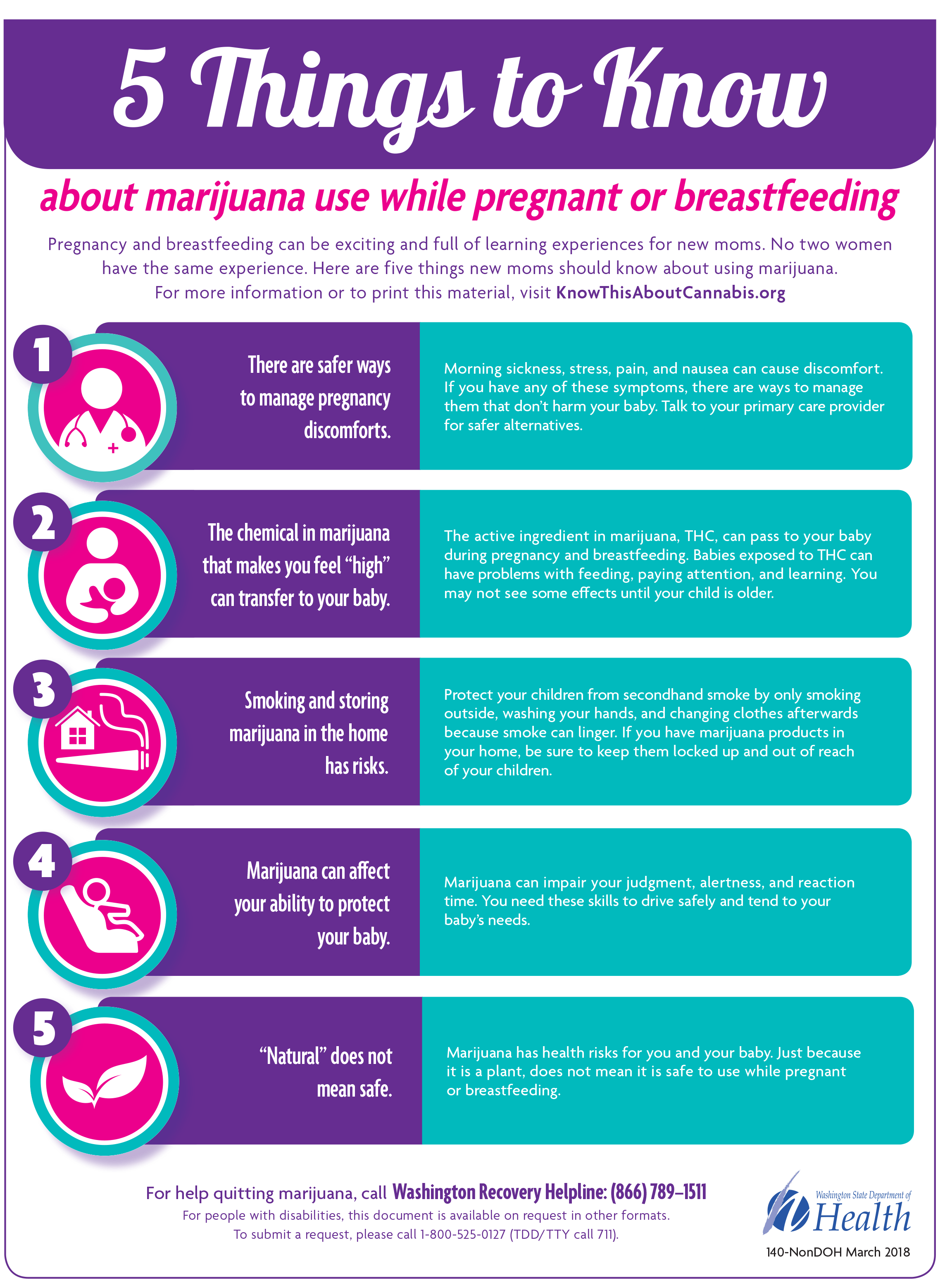
Support this browser is being discontinued for Pregnancy, Birth and Baby
Support for this browser is being discontinued for this site
- Internet Explorer 11 and lower
We currently support Microsoft Edge, Chrome, Firefox and Safari. For more information, please visit the links below:
- Chrome by Google
- Firefox by Mozilla
- Microsoft Edge
- Safari by Apple
You are welcome to continue browsing this site with this browser. Some features, tools or interaction may not work correctly.
8 Things About Household Cleaning During Pregnancy.com
House Cleaning During Pregnancy: Pros and Cons
It is not possible to give up household chores completely for nine months. From the point of view of doctors, cleaning during pregnancy plays a positive role. Moderate physical activity benefits the mother and fetus: improves blood circulation, helps keep muscles in good shape, reduce swelling and not gain extra pounds.
Home hygiene helps prevent bacterial and viral diseases. Carrying heavy buckets or climbing on window sills to clean windows is still not worth it. It is better to delegate these tasks to other family members or call a professional cleaner.
A woman's body goes through many changes during pregnancy. Each trimester has its own characteristics. They should be taken into account when distributing loads during the cleaning process.
There are also a number of activities that are strictly prohibited for pregnant women:
-
Climbing a ladder, stool, window sill and other “high-altitude” objects;
-
Lift weights over 5 kg, especially in the early stages;
-
Use prohibited household chemicals1;
-
Clean up the litter box and garden because of the risk of toxoplasmosis;
-
Make sudden movements: tilts, turns, squats;
-
Exposing the body to physical stress for a long time, denying yourself rest.
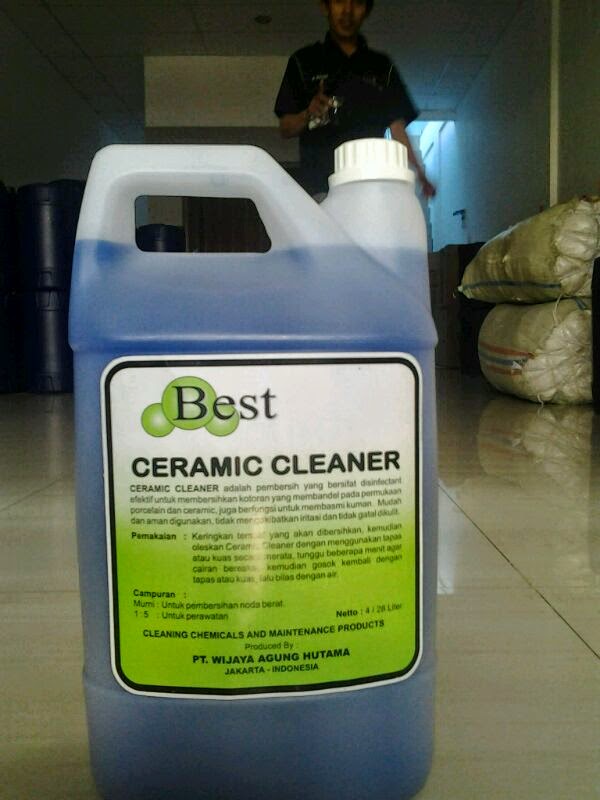
Is it safe to use household chemicals
Cleaning products should be chosen carefully during pregnancy. It is better to give preference to natural cleaners: citric acid, soda, vinegar. However, household chemicals and pregnancy are also quite compatible things. The enhanced composition of store detergents allows you to get rid of germs, bacteria and mold. All household chemicals on the Russian market are subject to examination in terms of sanitary-chemical and toxicological indicators. If a drug has the potential to cause harm to a pregnant woman or unborn child, a warning label is displayed on the label.
During the first trimester, the baby's vital systems and organs are formed. To protect the fetus from the action of various toxins, the female body produces a special hormone - gonadotropin. Thanks to him, cleaning in early pregnancy can be accompanied by hypersensitivity to odors and toxicosis. To avoid "side" effects, gynecologists recommend using fragrance-free detergents.
-
To combat pathogenic biofilm in the bathroom and toilet, powerful antibacterial agents like Domestos are indispensable. Sodium hypochlorite in its composition effectively kills germs and mold, keeping plumbing clean. All work must be carried out with rubber gloves and a respirator, and the premises themselves must be well ventilated;
-
Even with the right organization of the entrance area, dirt and microbes brought on shoes from the street spread throughout the apartment. Glorix disinfectant will get rid of potentially dangerous microorganisms, dust and other contaminants. Washing floors should also be done with protective gloves;
-
The kitchen seems to be one of the cleanest places in the house. However, high temperature, humidity, microdrops of fat and bacteria brought on the products create all the conditions for the growth of harmful microorganisms. Work surfaces should be cleaned regularly with Cif cleaning gels or sprays, and sponges and kitchen towels should be changed every couple of weeks;
-
Lime scale, grease stains and other dirt can be removed with folk remedies.
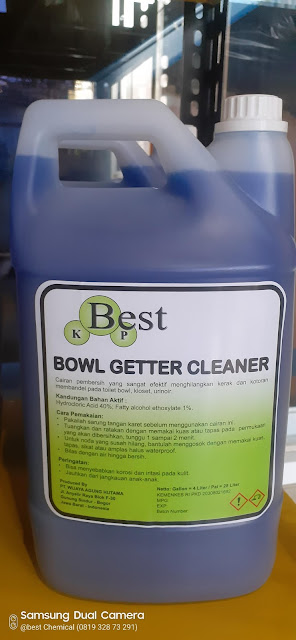 Apply a slurry of soda powder to the surface and after a while wash it off with a solution of vinegar;
Apply a slurry of soda powder to the surface and after a while wash it off with a solution of vinegar; -
Test on an inconspicuous area before applying detergent;
-
Carefully read the instructions, precautions and contraindications on the cleaning agent bottle. Follow the indicated dosage;
-
Never mix household chemicals. This can cause a reaction with the release of volatile chlorine - the strongest of household poisons;
-
If your general condition worsens after cleaning, dizziness or nausea occurs during pregnancy, immediately inform your family and, if possible, consult a doctor.
-
Replace your regular mop with a modern model with a longer handle and wringer;
-
Water bucket on wheels makes cleaning a lot easier;
-
Avoid bending over and putting pressure on your stomach. If you need to lean forward, bend your knees and gently stretch in the desired direction;
-
Vacuuming should be carried out with slow, smooth movements, after opening the windows for ventilation;
-
Many pregnant women find it easier to clean the floor by hand, gently kneeling or squatting;
-
If you have frequent low back pain, ask your doctor for a special abdominal support bandage.
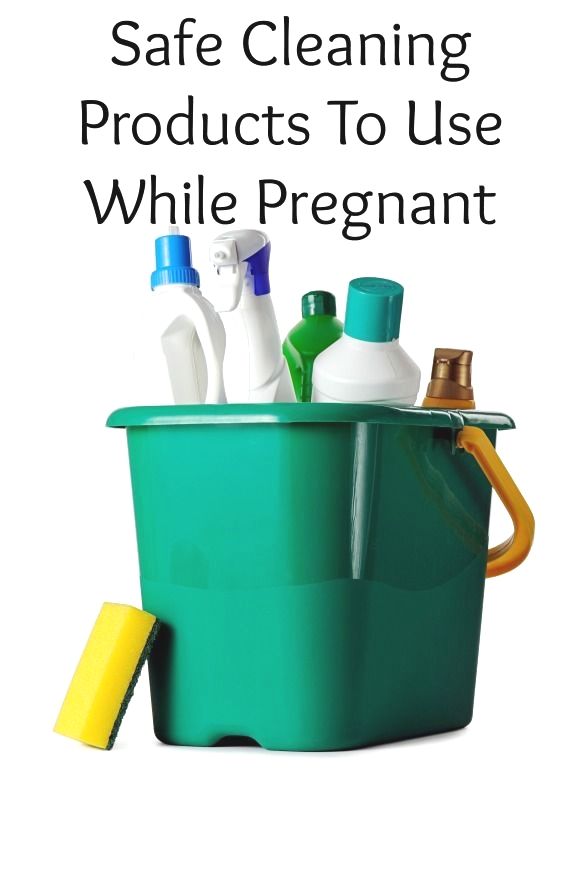
-
It is forbidden to climb ladders, chairs and other high objects to avoid the risk of falling;
-
It is strictly forbidden to lean out of the windows - entrust the washing of external surfaces to household members;
-
Do not raise your hands above your head - for cleaning remote areas, you can purchase a special scraper or mini window mop with a long handle;
-
Instead of aerosol detergents, it is better to use a citric acid solution.
-
It is better to replace ordinary washing powder with a sulfate-free detergent without fragrances - this will reduce the risk of allergic reactions;
-
Wet laundry becomes heavier - it is better to entrust it to your spouse;
-
Remove clothes from the washer in small batches and leave to dry at height.
-
Is it possible to wash floors during pregnancy
Washing floors and vacuuming during pregnancy is definitely possible.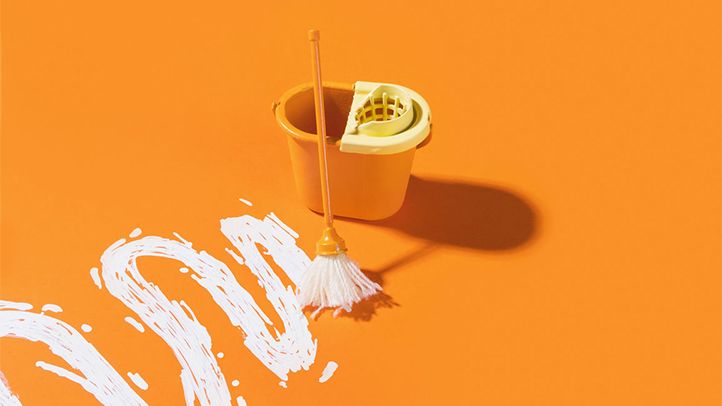 However, there is no universal instruction for this type of cleaning - doctors recommend proceeding from well-being and working in the most comfortable position for no more than half an hour, after which take a 15-minute break.
However, there is no universal instruction for this type of cleaning - doctors recommend proceeding from well-being and working in the most comfortable position for no more than half an hour, after which take a 15-minute break.
The successful course of pregnancy and childbirth is the merit of progesterone. The same hormone weakens the natural immune barrier, makes ligaments and joints more mobile. Along with the growth of the abdomen, the center of gravity shifts - this creates an additional load on the back.
Is it possible to wash windows during pregnancy
Clean windows not only please the eye, but also provide the necessary insolation. Windows should be washed as they get dirty. On the first floors, dust settles on the glass faster. The same applies to houses adjacent to highways and industrial zones.
How to wash and iron during pregnancy
Doctors advise against hand washing during pregnancy. It is detrimental to the back, besides it takes a lot of strength. If there is no choice, you should take the most comfortable position. Sit on a chair with a backrest, placing the basin with linen in front of you on a slight elevation.
If there is no choice, you should take the most comfortable position. Sit on a chair with a backrest, placing the basin with linen in front of you on a slight elevation.
Most modern materials do not need to be ironed. It is enough to dry things properly, and they can be worn. It is more convenient to align the folds and provide additional disinfection with a steam iron. For supporters of classic irons and ironing boards, doctors recommend doing all the work in a sitting position - this will help reduce the load on the legs and back, avoid swelling and varicose veins, and at the same time be less tired.
Cooking and washing dishes, as well as cleaning during pregnancy, should be done in a simplified manner. Get a comfortable chair to relieve stress on your back. Take frequent breaks and don't overwork yourself. Any household chores can wait - the main thing is your well-being and the health of the baby.
Use of Domestos in Pregnancy: Tips
How Harmful Domestos Is? If the product has the potential to harm a pregnant woman and an unborn baby, a warning must be placed on the label (1).
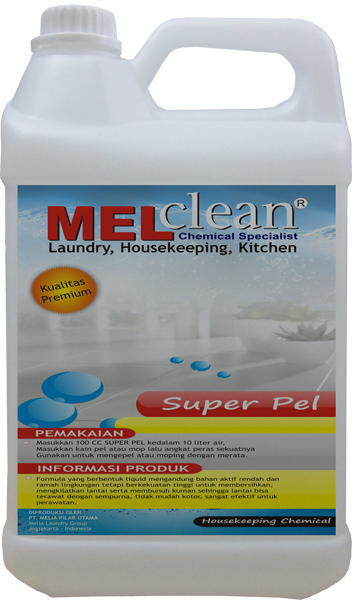
Domestos is a chlorine-based cleaner, so it is important to follow the directions carefully when using it. All-purpose cleaners of the line contain
Before using Domestos products, please read these simple recommendations:
-
Read the instructions on the back of the bottle carefully. Use in a concentrated form only on the surfaces intended for this purpose, and when diluted, follow the proportions indicated on the label.
-
Never mix Domestos with other household chemicals. This can lead to a sudden release of chlorine gas - it is extremely dangerous.
-
Store the detergent in its original packaging in a cool, dry place out of the reach of children and pets.
-
Wear protective gloves, goggles and a mask.
-
Be sure to ventilate the room during and after cleaning.
Good ventilation is particularly important - prolonged exposure to household chemical vapors can cause skin, eye and respiratory irritation.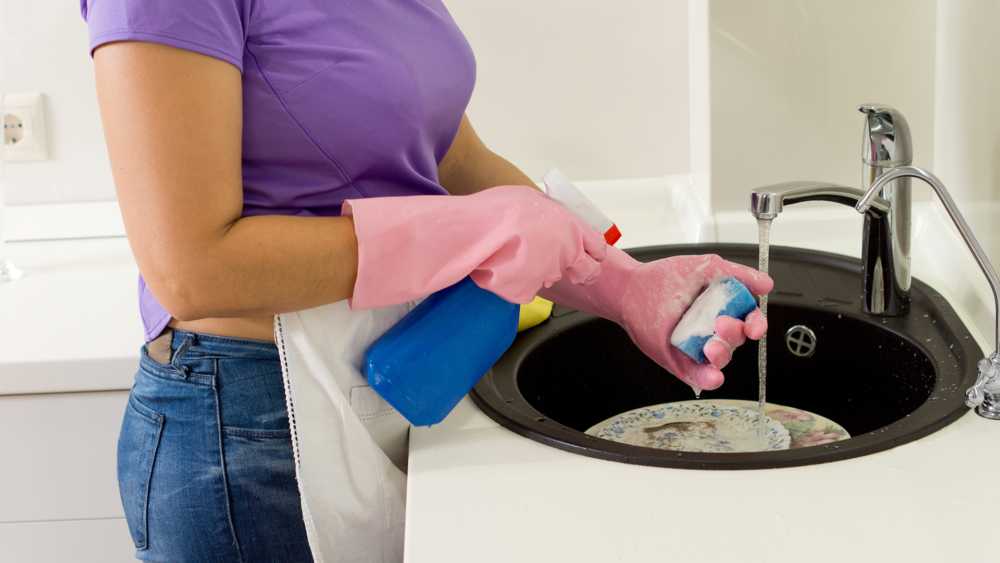 If a pregnant woman has inhaled Domestos, consult a doctor to rule out the risk of an allergic reaction. With the right precautions, you can keep your home perfectly clean without fear of harm to your health.
If a pregnant woman has inhaled Domestos, consult a doctor to rule out the risk of an allergic reaction. With the right precautions, you can keep your home perfectly clean without fear of harm to your health.
Pregnancy and Domestos: pros and cons
In the first 12 weeks of pregnancy, all systems and organs of the baby are laid. At this time, the mother's body with might and main produces chorionic gonadotropin - a hormone designed to protect the child from all possible toxins.
It is he who is the main culprit of toxicosis and hypersensitivity to odors. Susceptibility to many substances persists throughout the entire period of pregnancy. Therefore, doctors advise limiting the use of household chemicals, cosmetics and perfumes. At the same time, the reaction of the body for each woman is individual: if you are used to using Domestos for cleaning and do not experience discomfort when in contact with detergents, there is no reason to give up habits.
How to stay safe when cleaning
If you have any doubts about whether pregnant women can clean the bath with detergents, ask your doctor.